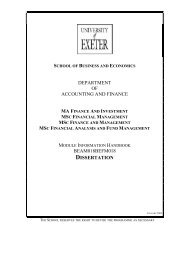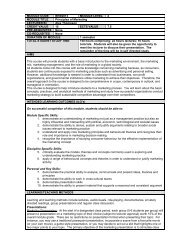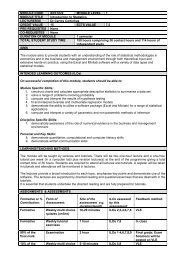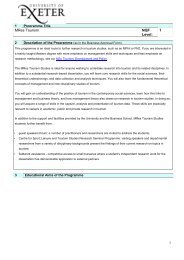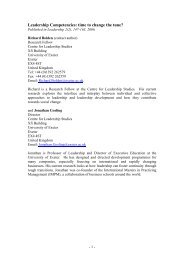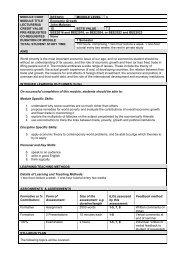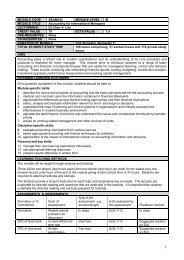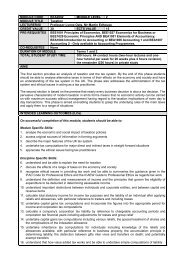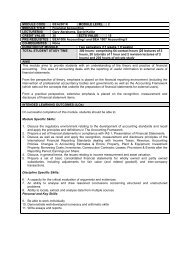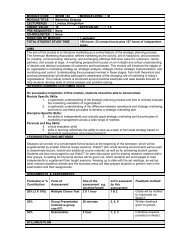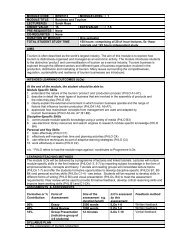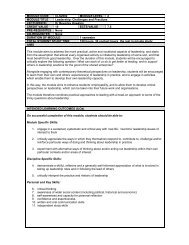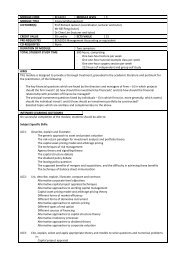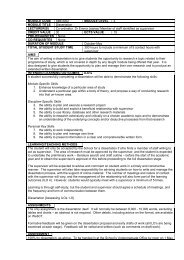Francesca Sanna-Randaccio paper - The Business School
Francesca Sanna-Randaccio paper - The Business School
Francesca Sanna-Randaccio paper - The Business School
You also want an ePaper? Increase the reach of your titles
YUMPU automatically turns print PDFs into web optimized ePapers that Google loves.
1. Introduction<br />
<strong>The</strong> potential impact of unilateral climate policy on national firms’ competitiveness and<br />
international location decisions is a key political issue both in the EU and the US. <strong>The</strong> main<br />
concern is that unilateral measures may lead national firms in carbon-intensive sectors to relocate<br />
production (and emissions) to countries not taking comparable actions, leading to considerable job<br />
losses and to a high degree of carbon leakage.<br />
According to Reinaud (2008), there is carbon leakage if a policy aimed to limit emissions<br />
in a region is the direct cause of an increase in emissions outside the region itself. Carbon leakage<br />
may take place via two competitiveness-driven channels: via changes in trade flows, and via<br />
foreign direct investment (FDI), that is through production relocation to countries not taking<br />
comparable mitigation actions. 1 <strong>The</strong> FDI channel is a critical mechanism, as it leads to major<br />
discontinuous changes, with a high degree of irreversibility, in both emissions and production<br />
(and thus employment). That is why in the policy discussion most attention is given to what may<br />
be called as “relocation-driven carbon leakage”, which implies considerable job losses.<br />
<strong>The</strong> carbon leakage debate has been undergoing for sometime in the EU due to the<br />
unilateral adoption of the cap-and-trade scheme, denominated EU Emission Trading Scheme (EU<br />
ETS). 2 <strong>The</strong>se measures have created a more stringent environmental regime in the EU as<br />
compared to other geographical areas, and thus may have important repercussions on the<br />
competitiveness of European firms, particularly in energy-intensive industries (Mc Kinsey 2006;<br />
Bergmann et al. 2007; World Bank 2008; OECD 2009). A similar discussion is currently taking<br />
place in the US, where the American Clean Energy and Security Act (ACES) was approved in<br />
June 2009 by the House of Representatives, and is now under examination by the Senate. <strong>The</strong> fear<br />
of adverse impacts of environmental policies is heightened by the claims of energy-intensive<br />
industries across the Atlantic. EU producers have warned insistently that a tightened ETS will<br />
force them to move factories and jobs beyond the EU border, asking thus for compensatory<br />
measures. 3 Similar claims were advanced by US producers. 4 <strong>The</strong> question we will address is<br />
whether these fears are overrated or not. 5<br />
2



